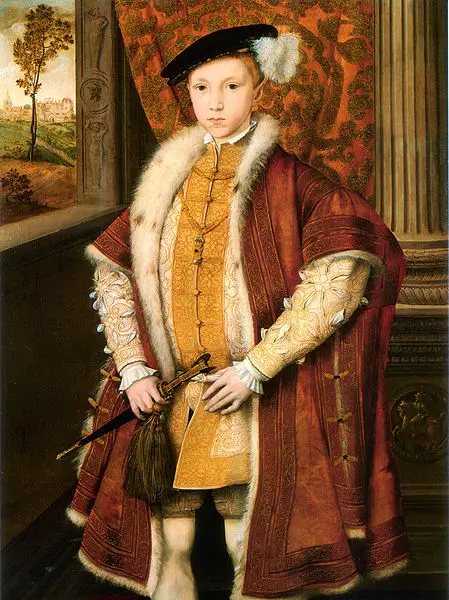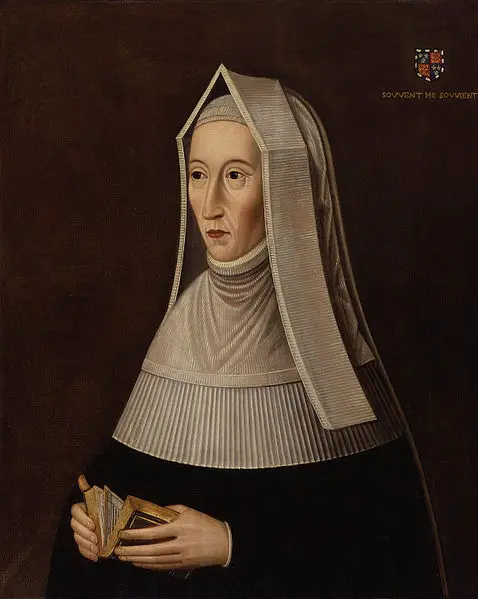 On 3rd July 1495, the pretender Perkin Warbeck landed at Deal in Kent with men and ships. Around 150 of his men were killed and over 160 captured by Henry VII's troops. Warbeck escaped, fleeing to Ireland. Warbeck claimed to be Richard, Duke of York, the younger of the Princes in the Tower.
On 3rd July 1495, the pretender Perkin Warbeck landed at Deal in Kent with men and ships. Around 150 of his men were killed and over 160 captured by Henry VII's troops. Warbeck escaped, fleeing to Ireland. Warbeck claimed to be Richard, Duke of York, the younger of the Princes in the Tower.
The following account of Warbeck's landing at Deal is taken from 19th century paleographer Sir Frederick Madden's work on Perkin Warbeck, which he based on contemporary sources:
"It was in the course of the summer immediately following, that Perkin having received from Maximilian, Philip and Margaret, the aid of ships and men, made his first attempt on the coast of England, and on the 3rd July, 1495, landed a portion of his troops at Deal in Kent. The time had been well chosen (having probably been previously concerted with some secret agent in England) for Henry was then engaged on a progress towards the north, and did not return till the middle of October. Had the adventurer indeed at this period been joined by any persons of rank, or his cause espoused by the people, as he had vainly been led to hope, the issue might have been very different. Finding, however, that the forces he had landed were received as enemies, and either slain or captured, he immediately altered his course, and steered towards Ireland, where with the assistance of the Earl of Desmond, he laid siege to Waterford; but having been compelled to raise the siege by an army under the command of the Lord Deputy, and having lost three of his ships, he retreated with precipitation, and returned again to Flanders, re infecta."
The next account is from Edward Hall's 16th century chronicle. The spelling is Hall's original spelling and "u"s and "v"s are interchangeable. Tip: Read aloud, it's very phonetic.
"So that nowe the kyng beyng out of all feare of battaile, dyd take his progresse into Lancasshire the. xxv. daie of Juyn, there to recreate his spirites and solace him selfe with his mother the Lady Margarete wife to the Earle of Darby, whiche then laye at lathome in that countrey. While these thinges were thus done in England, Perkyn Warbeck then beyng in Flaunders, although he had taken great care and sorowe for that his craftie conueighaunce was espied and openly knowen, and also that kyng Henry had afflicted and punished diuerse of his confederates and alyes, and therby in despaire of all the ayde and succour that was to hym promysed and appoyncted: Yet he determined not to leaue the hope and trust that he had conceaued in his mad head to obteyne the crowne and realmc of Englande, and so gatherynge a greate armye of valyaunt Capiteyns of all nacions, some banquerautes, some false Englyshe sanctuary men, some theues, robbers and vacaboundes, whiche leauynge their bodely laboure desyrynge only to lyue of robbery and rapine, came to be his seruauntes and souldioures. And so being furnished with this rablemente of knaues, tooke suche shippes as his frendes had prouyded for hym, and departed oute of Flaunders, entendynge to arryue in England whersoeuer the winde brought hym. And by chaunce of fortune he was dryuen vpon the Kentyshe coaste, where because y see was calmed, he cast his anchors and there made his abode, and sent certeine of his retinewe to the lande to signifie to all the countrey that he was so furnished of all thinges mete and couenyet for his entreprice, that there was no doubt but the victory woulde enclyne to his parte. And by this meanes to make exploracion and enquirye whether the Kentishmen woulde take his parte and folowe hym as their capitayne, whiche before tymes was not tymerous nor afraide of their awne mynde in troubleous seasons to moue warre againste their princes. The Kentyshmen hearynge that this feyned duke was come, and had heard that he was but a peinted ymage, doubtyng a space what to do, whether to helpe him or to resist his power, at the last remembryng what euell chaunces their forefathers had, and how smal a profile such as haue rebelled haue gained, thought it neither expedient nor profitable for theim to aide & assyst hym that came rather to spoyle, destroye & wast the countrey, then to conquere it for their wealthe & comodity. And this thei firmely conjectured because he had none other with him but Alienes and straunge people, which would take & accompte euery church, toune, chapell, house & euery priuate man as a pray and a luere, and not as their natyue countrey. Wherfore they fearing the sequele, determyned still to abide trewe to their kyng and prince, & to fall vpon suche as were new come to land out of their shippes. And while thei were assemblyng of theimselues together, other should by fayre promises & fredly woordes allure & calle vnto theim the great nombre out of the shippes, and so geue theim battaill. And so vsyng this guyle and imposture, they promised all to folowe him and to fight vndre his banner: Howbeit the prolonging of time draue Perkyn into a suspicion, which wel remebred y a comminaltie is not accustomed sagely to cosult, but sodeinly & temerariously to ronne hedlyng euer into rebellion & newe stirred comocion. Wherfore Perkyn determined not once to set foote oute of his ship till he sawe al thing sure wout any scruple or ambiguitee. And although he minded not to take land him selfe, yet he permitted certeyne of his souldiours to go on land, which persones beyng a prety waye fro their shippes, were sodeinly circumuented & compassed by the Kentyshmen, & at one stroke vanquyshed and dryuen backe to their shippes, & ther wer take prisoners an hundred and. Ix. persons, whereof, v. were named capiteins Mountforde, Corbet, white belt, quyntine or othenvyse Genyn. Whiche rebelles were brought by sir Ihon Pechy shreue of kent, to London railed in ropes like horses drawyng in a carte. And after vpon their arraynement, confessed their offence, and were executed some at London, & other in the tounes adioynynge to the see coaste. Wherfore Perkyn failyng of his purpose fled back into Flaunders and there taried, consultyng with his frendes vntill suche tyme as he had better prepared for thinges to come more prudently then he had done before tyme."
Warbeck landed for a second time in England on 7th September 1497, landing at Whitesand Bay, near Land's End, Cornwall. He challenged Henry VII's claim to the throne by raising a rebellion in Cornwall after he was declared Richard IV on Bodmin. However, the rebellion was squashed and Warbeck was captured and imprisoned. He was hanged at Tyburn on 23rd November 1499 after escaping twice from the Tower of London and being recaptured.
Notes and Sources
- Archaeologia Or Miscellaneous Tracts Relating to Antiquity: Volume 27, Documents relating to Perkin Warbeck with Remarks on his history; communicated in a Letter to the Right Honourable the Earl of Aberdeen, Pres. S.A., from Sir Frederick Madden, p. 170.
- Hall's Chronicle, Edward Hall, p. 471-472.



Leave a Reply